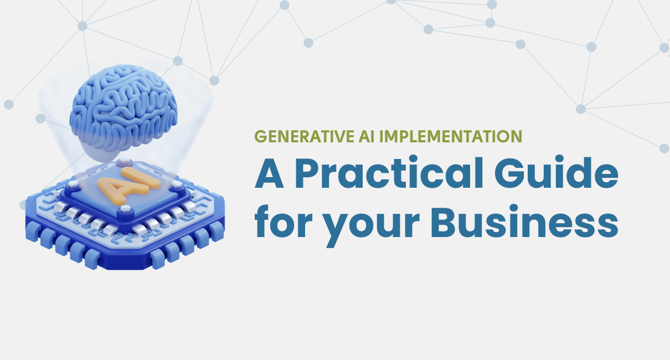Beyondkey
3w
256

Image Credit: Beyondkey
Generative AI Implementation: A Practical Guide for Your Business
- Generative AI implementation can help businesses with tasks automation, personalized customer experiences, and data-driven decision-making.
- Implementing generative AI requires a structured framework for a smooth process.
- Key areas for successful generative AI implementation include multimodal AI solutions, real-time AI processing, edge AI deployment, and AI-powered decision support.
- Multimodal AI solutions incorporate various data types for a comprehensive understanding and enhanced customer experiences.
- Real-time AI processing enables immediate insights and proactive responses to events for improved efficiency.
- Edge AI deployment brings AI processing closer to data sources, reducing delays and enhancing reliability.
- AI-powered decision support systems assist in making informed decisions, improving accuracy and efficiency.
- Generative AI can enhance Enterprise Resource Planning (ERP) systems through predictive analytics, workflow automation, and smart reporting.
- Natural Language Processing (NLP) enables AI systems to understand and generate human-like text for improved communication.
- Machine learning and deep learning play crucial roles in content generation, data analysis, and pattern recognition for AI models.
Read Full Article
15 Likes
For uninterrupted reading, download the app